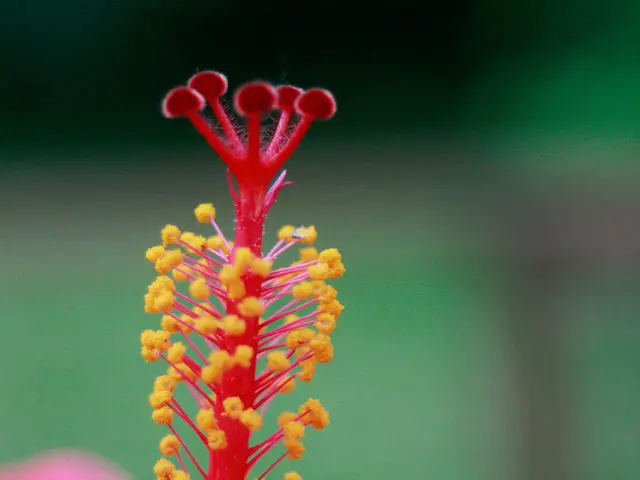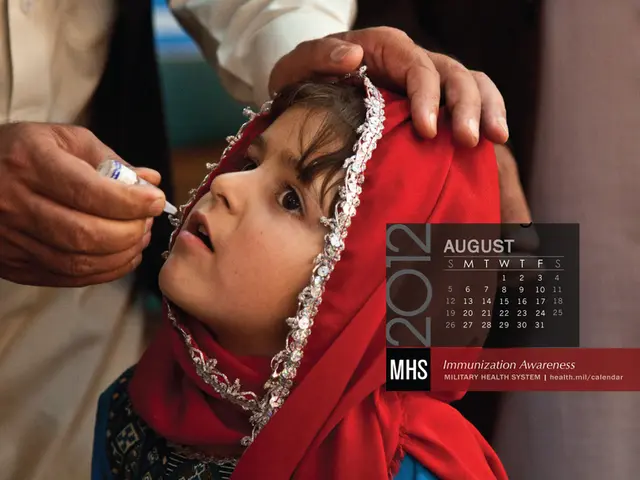Amidst Challenges: HPV Vaccine Distribution Initiated in Flood-Stricken Areas Amidst Community Resistance
In a significant move towards public health, Pakistan is set to launch a nationwide HPV vaccine campaign from September 15 to 27, 2025. The initiative aims to vaccinate 90% of girls aged 9-14 years, as part of a larger global strategy for the elimination of cervical cancer.
The campaign is supported by the government, along with organisations such as the World Health Organization (WHO), UNICEF, and the Global Vaccine Alliance (GAVI). Dr Aminah Khan, a Public Health expert, is leading the efforts for the national integration of the HPV vaccine and is involved in the development and implementation of Social and Behaviour Change Communication (SBCC).
Cervical cancer, the most prevalent type of HPV-related cancer, is a significant health concern in Pakistan. According to data from 2023, over 5000 women are diagnosed with cervical cancer every year, and 3197 women die from the disease. The HPV vaccine, which will be supplied for free and become part of routine immunization, holds the potential to prevent up to 133,000 cervical cancer cases in Pakistan.
However, the success of the vaccination efforts is not without challenges. Lack of understanding among the masses and associated stigmas, compounded by the conservative social and cultural environment of Pakistan, pose barriers to the implementation of the HPV vaccine. Dr Aminah emphasized that 'No girl should be left behind' and that efforts will be made to address these barriers.
To achieve this, a collaboration will be nurtured with Health, Education, Religious leaders, Media, and Institutes to ensure smooth execution. KAB studies will be conducted to gather insights from all provinces, and Dr Aminah believes that nearly 70% of the targeted aims can be achieved despite the conservative environment.
It is important to note that HPV is a sexually transmitted disease that affects the genital area, skin, and throat. It can lead to genital warts and the development of abnormal cells, which often lead to cancers. HPV primarily affects the squamous and columnar epithelium cells at the cervical transformation zone, making the cervix more susceptible to the virus.
The WHO supports the Pakistani government in introducing the HPV vaccination, aiming to align with the Global Strategy to eliminate cervical cancer by increasing vaccination coverage and reducing HPV-related cervical cancer cases.
In recent years, there have been efforts to introduce the HPV vaccine in various provinces. The HPV vaccine was initially introduced in Pakistan in 2019 but was not integrated within the National Immunization Program and was discontinued for unknown reasons. The provinces of Sindh and Khyber Pakhtunkhwa have announced their plans to start the HPV vaccination program. While Sindh announced the program in 2022, it did not commence and is now promised to start in September 2025. Khyber Pakhtunkhwa is planning to launch the HPV vaccination campaign in 2026.
Despite these efforts, a small survey of students revealed that 53.8% did not know about HPV or the HPV vaccine, and 23.1% thought men could not contract HPV. Addressing such misconceptions is crucial for the success of the HPV vaccination campaign.
In conclusion, the HPV vaccination campaign in Pakistan is a significant step towards the elimination of cervical cancer. With the support of various organisations and the commitment of Dr Aminah Khan and the Pakistani government, the campaign aims to reach 90% of girls aged 9-14 years and make a significant impact on cervical cancer rates in Pakistan.








